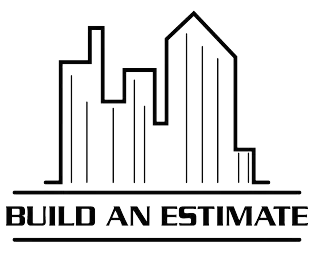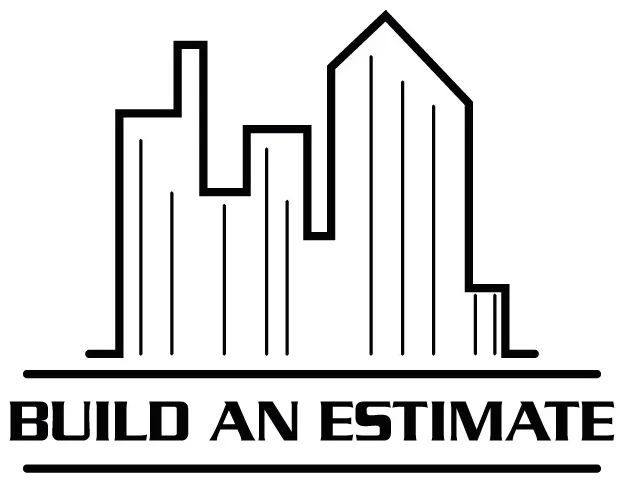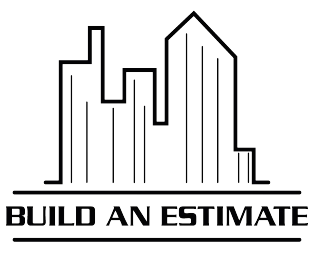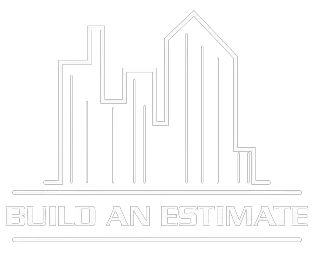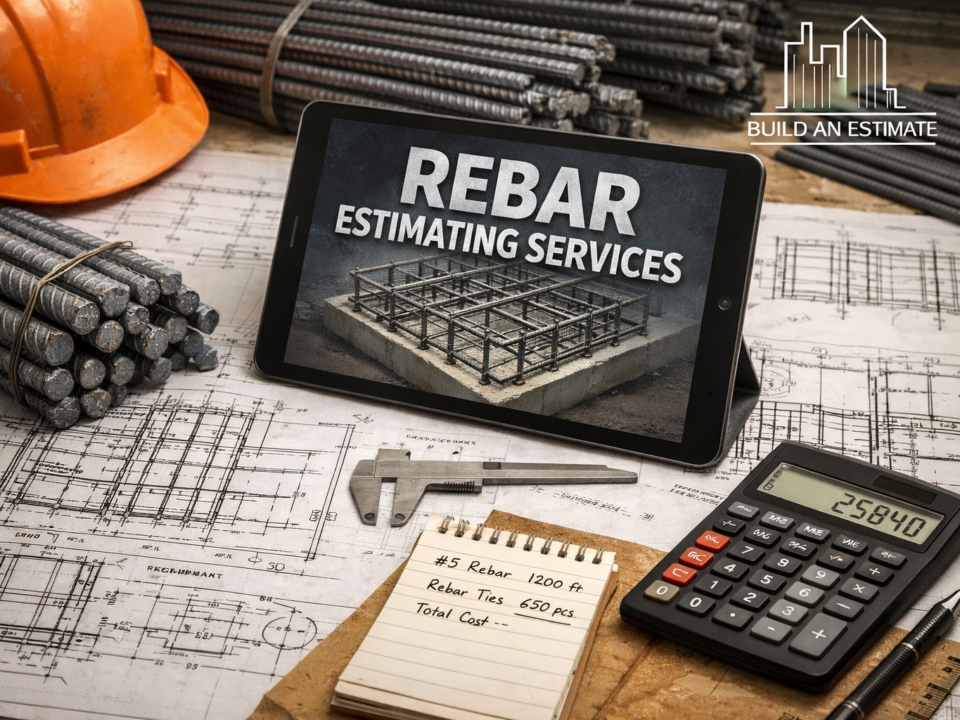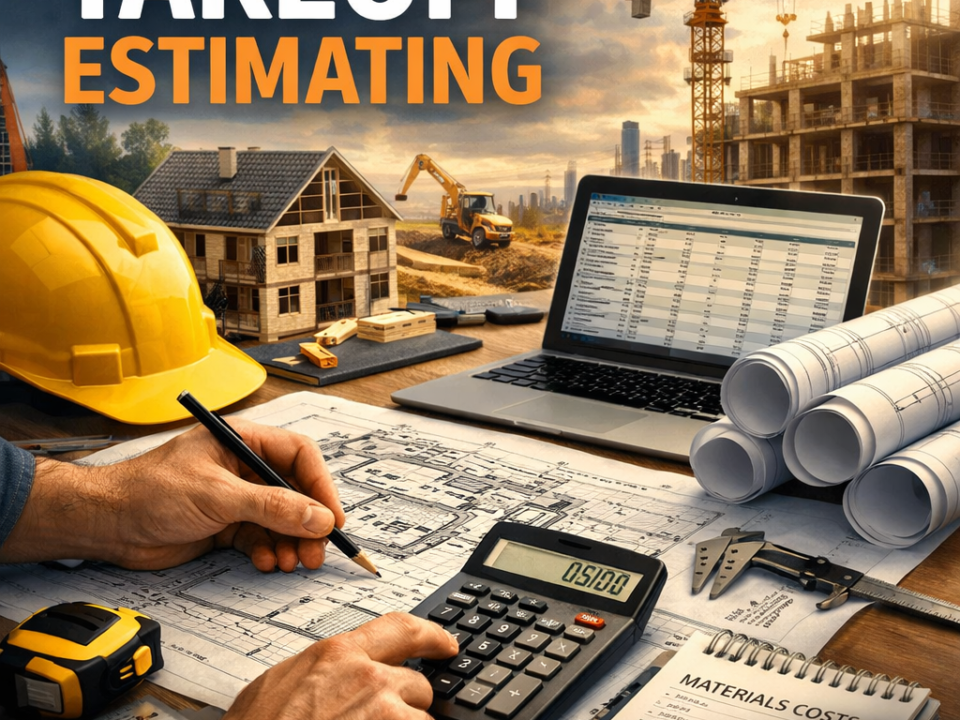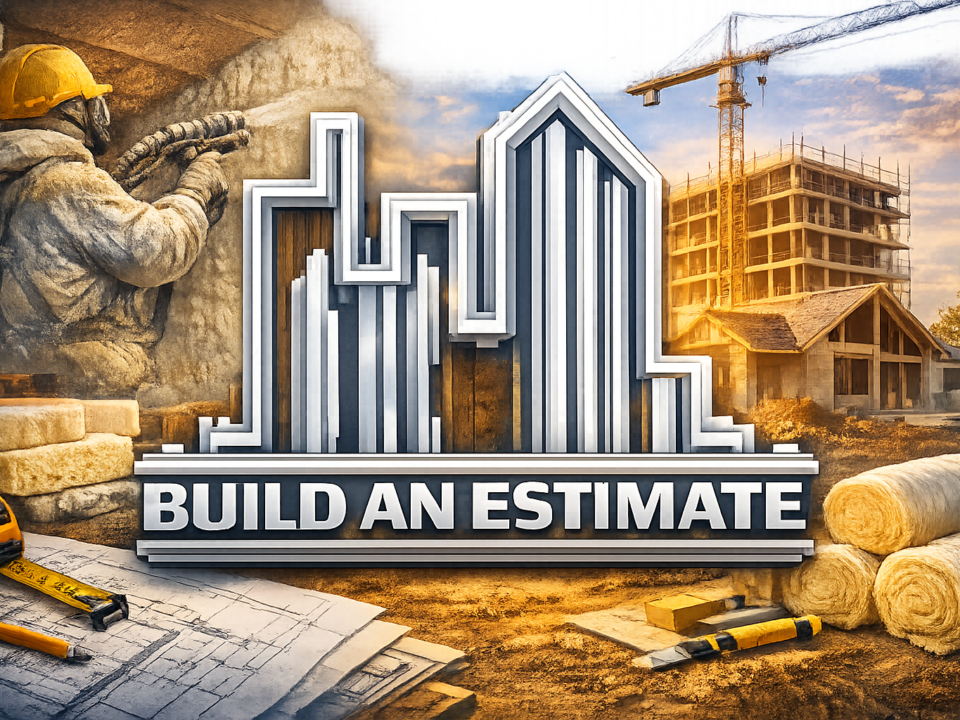- HOME
- SERVICES
- OUR TRADES
- ARCHITECTURAL DESIGN
- SAMPLES
- OUR PROJECTS
- ABOUT US
- CONTACT US
- Home
- Services
- Our Trades
- Samples
- Pricing
- Blog
- About Us
- Contact
- HOME
- SERVICES
- OUR TRADES
- ARCHITECTURAL DESIGN
- SAMPLES
- OUR PROJECTS
- ABOUT US
- CONTACT US
- Home
- Services
- Our Trades
- Samples
- Pricing
- Blog
- About Us
- Contact

Choosing the Right Concrete Estimating Service for Your Project
June 23, 2023
How Construction Cost Estimating Services Can Save You Time and Money
July 1, 2023Construction Estimate: 5 Key Elements for Maximum Accuracy
If you’re in the construction industry, you understand the importance of accurate estimates. A well-prepared construction estimate not only helps you win projects but also ensures that you stay within budget and deliver on time. But what are the key elements that you should include in your estimate to maximize accuracy? In this article, we will explore five essential elements that every construction estimate should have. From labor costs and materials to overhead expenses and contingencies, we will delve into each aspect, providing you with practical tips and insights to help you create estimates that are as accurate as possible. So, whether you’re a seasoned contractor or just starting out in the industry, read on to discover the key elements that will make your construction estimates a valuable tool for success.
Table of Content:
- Importance of Accurate Construction Estimates
- Detailed Project Scope
- Accurate Material Quantities
- Labor Costs and Productivity Rates
- Equipment and Machinery Costs
- Contingency and Overhead Costs
- Using Construction Estimating Software for Accuracy
- Common Challenges in Creating Accurate Construction Estimates
- Conclusion and Final Tips for Maximum Accuracy
Importance of Accurate Construction Estimates

Accurate construction estimates are the foundation of any successful project. They provide you with a clear understanding of the costs involved, allowing you to plan and allocate resources effectively. A well-prepared estimate not only helps you win projects but also enables you to set realistic timelines and manage client expectations. Moreover, accurate estimates are crucial for maintaining profitability and avoiding costly mistakes that can eat into your bottom line.
Detailed Project Scope
Detailed project scope is the backbone of any construction estimate. It outlines the specific tasks, deliverables, and objectives of the project. Including a thorough project scope in your estimate helps you identify potential challenges, estimate the amount of work required, and allocate resources accordingly. The project scope should include a comprehensive list of all the work to be done, including any additional services or special requirements requested by the client.
To create a detailed project scope, start by breaking down the project into manageable phases or tasks. Then, provide a description of each task, including the materials, labor, and time required. Be as specific as possible, mentioning any potential complications or site-specific factors that may impact the project’s cost or duration. By including a detailed project scope in your estimate, you not only ensure accuracy but also demonstrate your professionalism and attention to detail to potential clients.
Accurate Material Quantities
Accurate material quantities are essential for an accurate construction estimate. Any miscalculations or omissions in this area can lead to cost overruns or delays. To ensure accuracy, start by conducting a thorough takeoff, which involves measuring and quantifying all the materials required for the project. This includes everything from lumber and concrete to fixtures and fittings.
When calculating material quantities, it’s crucial to consider factors such as waste, shrinkage, and potential material substitutions. Additionally, stay up to date with current market prices to ensure that your estimate reflects the actual cost of materials. By taking the time to accurately calculate material quantities, you can avoid surprises and ensure that your estimate aligns with the project’s requirements.
Labor Costs and Productivity Rates
Labor costs are a significant component of any construction estimate. To accurately estimate labor costs, you need to consider not only the number of workers required but also their respective skill levels and productivity rates. Different tasks may require different levels of expertise, and it’s essential to account for this in your estimate.
When estimating labor costs, break down the project into specific tasks and determine the number of hours required for each task. Consider factors such as overtime, travel time, and any potential disruptions that may impact productivity. Additionally, research industry-standard labor rates to ensure that your estimate reflects the current market conditions. By accurately estimating labor costs, you can avoid underestimating or overestimating this crucial aspect of your project.
Equipment and Machinery Costs
Equipment and machinery costs are often overlooked in construction estimates but can have a significant impact on the overall project budget. Whether you own the equipment or need to rent it, it’s crucial to include these costs in your estimate. Consider the specific equipment required for each task and calculate the rental or ownership costs accordingly.
When estimating equipment and machinery costs, factor in fuel, maintenance, and any additional expenses such as insurance or permits. Additionally, consider the duration of equipment usage and any potential downtime due to repairs or maintenance. By including accurate equipment and machinery costs in your estimate, you can ensure that your budget accounts for all the necessary resources.
Contingency and Overhead Costs
Contingency and overhead costs are an essential part of any construction estimate. Contingency costs provide a buffer for unexpected expenses or changes in the project scope, while overhead costs cover general business expenses such as administrative costs, insurance, and office rent. Including these costs in your estimate helps you manage risks and ensure that your project remains financially viable.
When determining contingency costs, it’s recommended to set aside a percentage of the total project cost. The exact percentage may vary depending on factors such as project complexity, site conditions, and the client’s risk tolerance. Overhead costs, on the other hand, should be calculated based on your specific business expenses. Include all relevant costs, such as staff salaries, marketing expenses, and utilities, to ensure that your estimate accounts for all overhead expenditures.
Using Construction Estimating Software for Accuracy
To maximize the accuracy of your construction estimates, consider using specialized construction estimating software. These tools can streamline the estimating process, reduce errors, and provide you with detailed reports and analyses. Construction estimating software allows you to create templates, store cost data, and generate professional-looking estimates quickly and efficiently.
When choosing construction estimating software, look for features such as material takeoff capabilities, labor rate customization, and integration with accounting systems. Additionally, consider the ease of use and customer support provided by the software provider. Investing in reliable estimating software can save you time and improve the accuracy of your estimates, giving you a competitive edge in the industry.
Common Challenges in Creating Accurate Construction Estimates
Creating accurate construction estimates can be challenging, even for experienced contractors. Some common challenges include incomplete project information, changing market conditions, and unforeseen site conditions. Lack of communication or collaboration with subcontractors and suppliers can also lead to inaccurate estimates.
To overcome these challenges, it’s essential to establish clear lines of communication with all project stakeholders. Gather as much information as possible before creating your estimate and involve subcontractors and suppliers in the estimating process. Regularly update your estimate as market conditions change, and be prepared to adjust your budget if unforeseen site conditions arise. By addressing these challenges proactively, you can increase the accuracy of your estimates and minimize the risk of costly surprises.
Conclusion and Final Tips for Maximum Accuracy
Accurate construction estimates are critical for the success of any project. By including key elements such as detailed project scope, accurate material quantities, labor costs, equipment expenses, and contingency and overhead costs in your estimate, you can maximize accuracy and ensure a smooth and profitable construction process. You can use some tools that will help you with these, You can check out the list of these tools here, Top Construction Estimating Software – 2023 Reviews (softwareadvice.com)
Additionally, consider using construction estimating software to streamline the estimating process and improve accuracy. Stay up to date with industry trends and market prices to ensure that your estimates reflect current conditions. Finally, communicate openly and collaborate with subcontractors and suppliers to gather the necessary information and avoid surprises.
Remember, accurate estimates not only help you win projects but also demonstrate professionalism and reliability to clients. By investing time and effort into creating accurate estimates, you can set yourself apart in a competitive industry and increase your chances of success. So, make accuracy a priority and watch your construction estimates become powerful tools for your business.
Get professional Construction Estimation Services with Material Takeoffs from our experienced estimators with 15+ years of experience. Fast Turnaround Time. Delivering Accurate and Reliable Estimates for Every Construction Trade.
